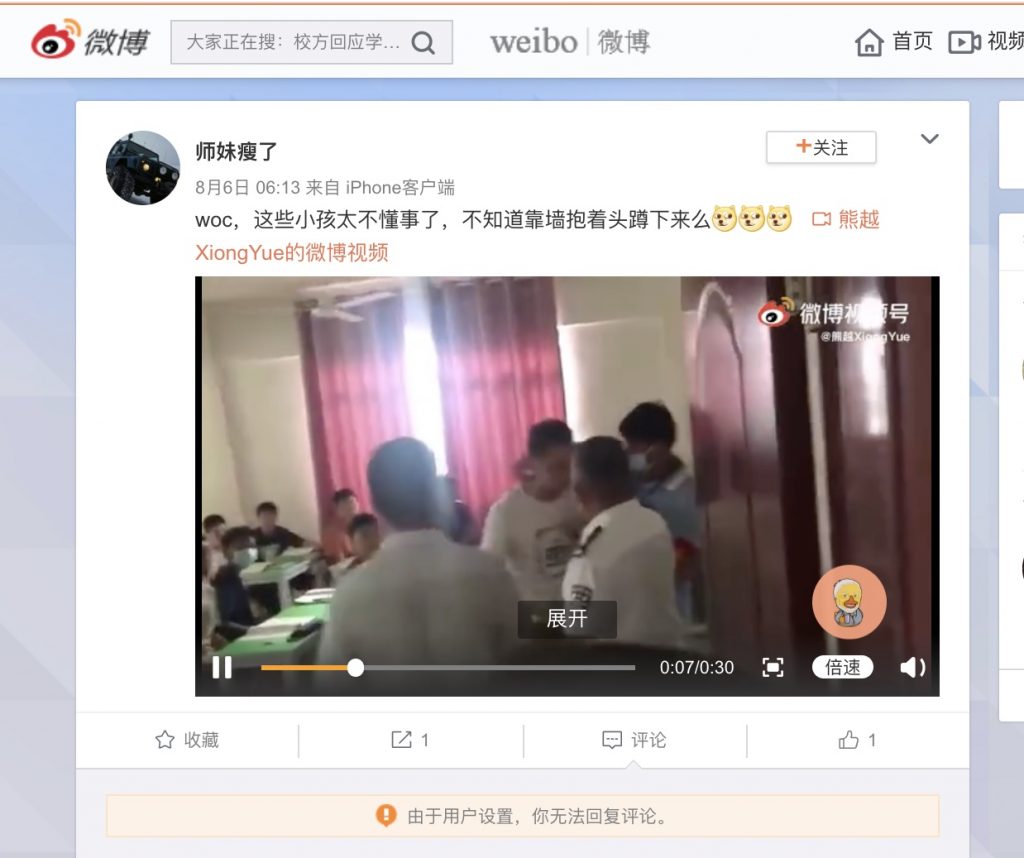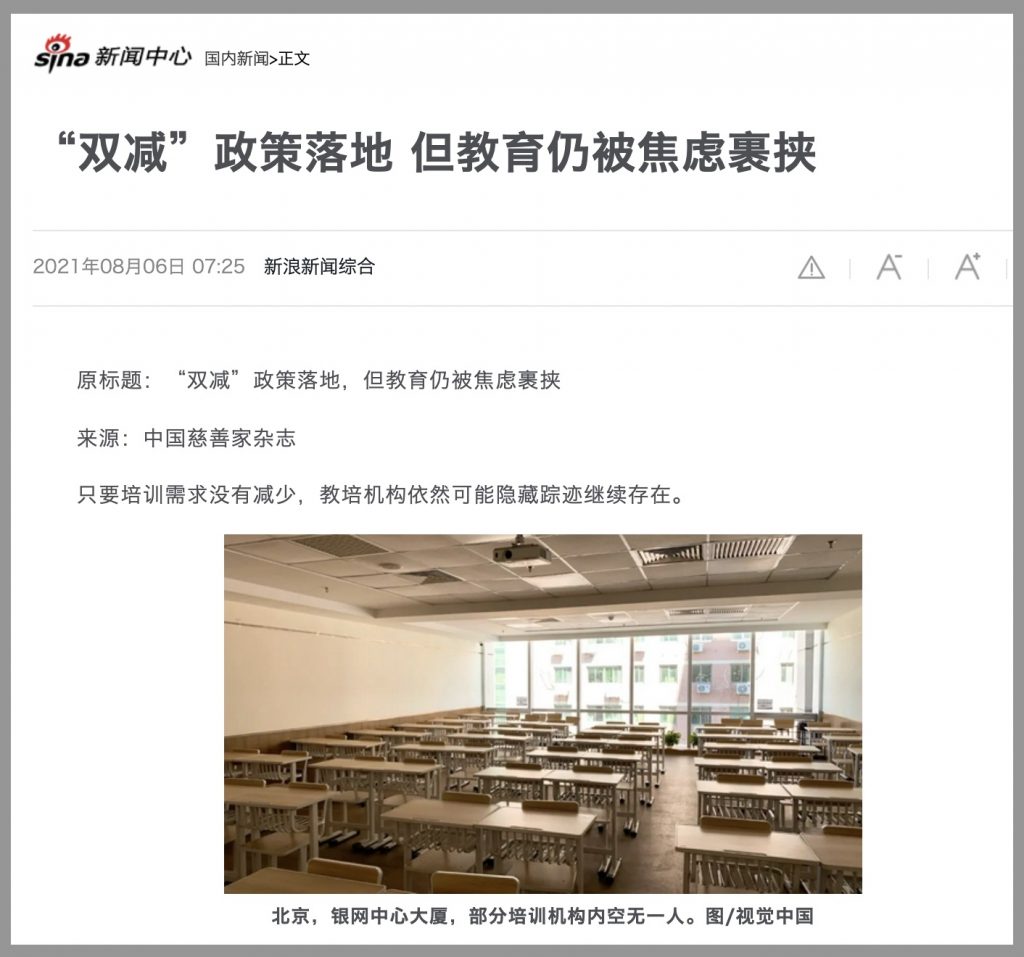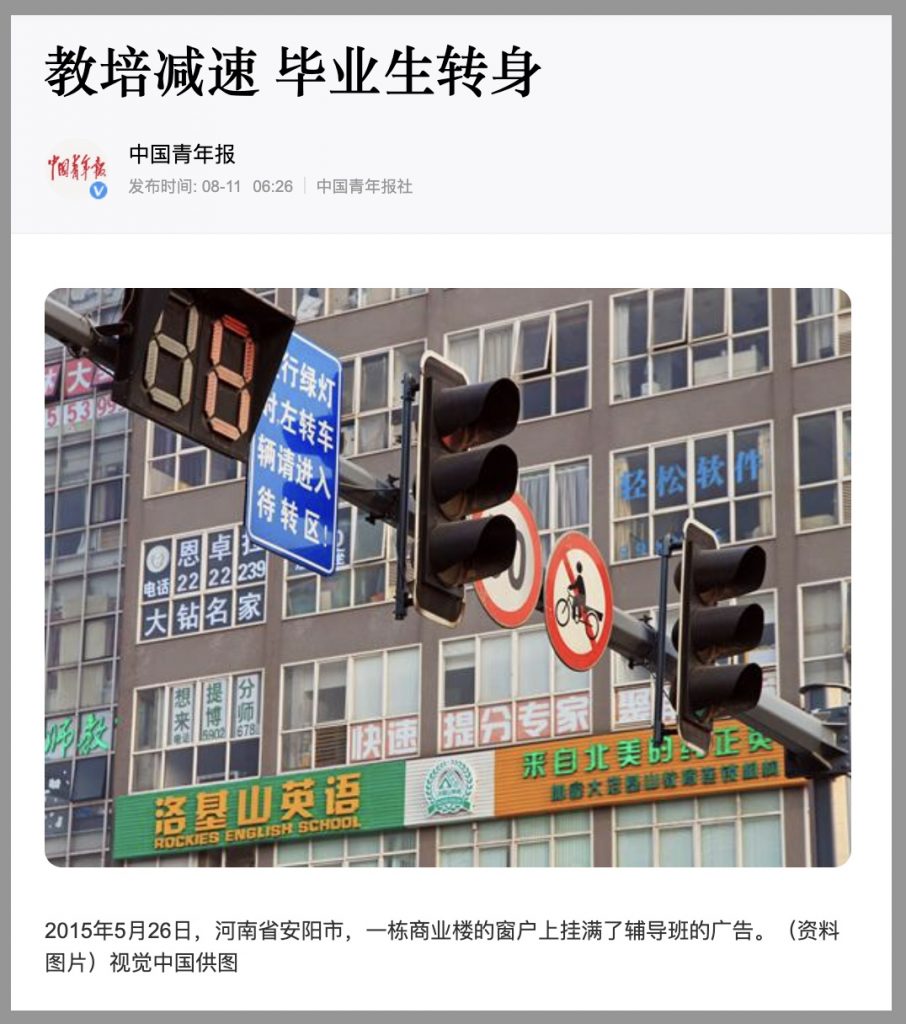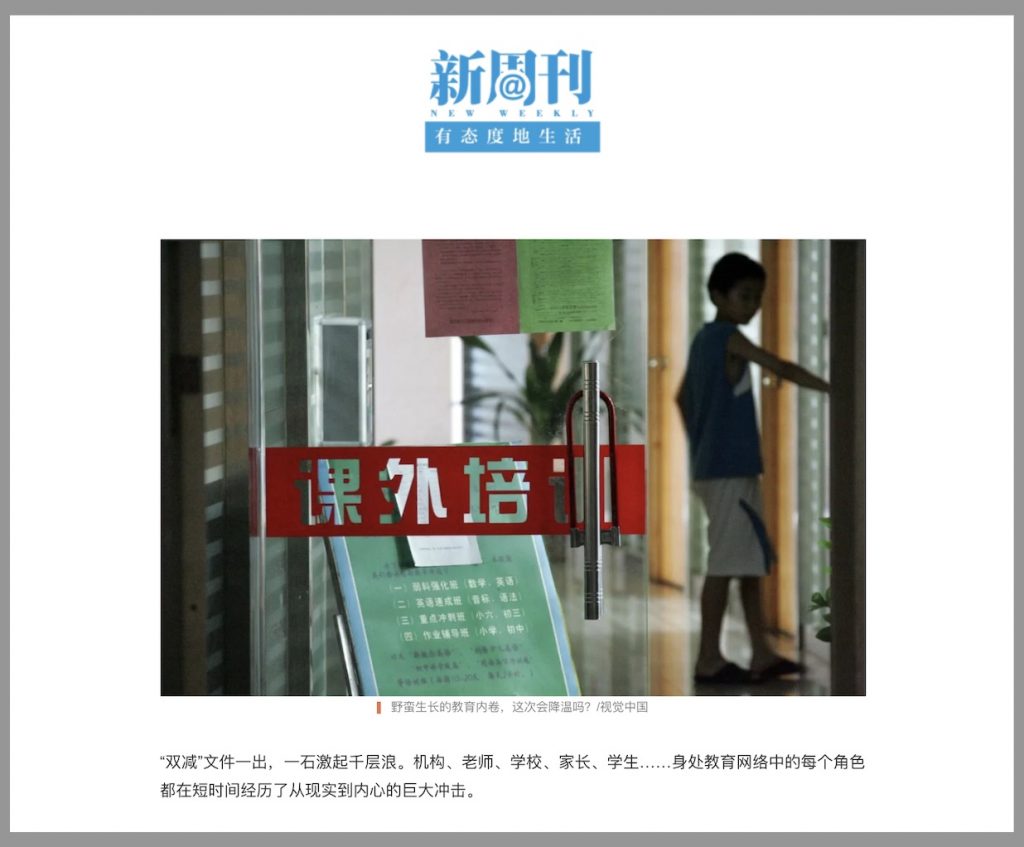
Image by Rex Pe available at Flickr.com under CC license.
Back in July, new rules governing China’s multi-billion dollar tutoring industry, issued by the General Office of the State Council, came as a shock to many Chinese. While the rules were introduced with the goal of reducing the burden on children and families exhausted by the financial cost and psychic burden of hyper-competitiveness in education, they prompted widespread skepticism about their effectiveness.
Parents and experts noted, among other concerns, that the policy would do little to mediate pressures if more was not done to address unequal distribution of state education resources. And the policy, many complained, primarily impacted more financially strained families, those they were ostensibly crafted to assist, while having little effect on wealthy Chinese who could afford other avenues to fast-track their kids for success – including hiring in-home help and sending their children abroad.
A further concern was the immense impact the policy would have on a lucrative sector and related careers, as the rules specified that Chinese education firms must operate as non-profit entities and could no longer seek public listings or raise foreign capital. The new policy meant that private tutoring institutions, including well known service providers like New Oriental (新东方) and GOTU (高途课堂), both listed on the New York Stock Exchange, faced the prospect of struggling to seek further investment in the tutoring business.
While the policy states that tutoring classes can no longer take place during weekends and public holidays, news reports have indicated that parents are already finding ways to circumvent the rules. Video circulating widely on social media in early August, shortly after the regulations took effect, showed a raid on a suspected illegal private tutoring class in Anhui province. In the video, police responded violently, kicking open the classroom door and even grabbing the tutor by the neck.

In the midst of ongoing discussion over the July rules, one overarching question has remained: Is this a real policy designed to relieve stress on parents and children, responding to rising costs and expectations? Or is it a “head-patting decision” (拍脑袋决策) – a policy expediently thought out and rashly implemented?
In the Chinese media and on social media platforms discussions of the new education measures have centered around the term “double reduction,” or shuangjian (双减), which summarizes the policy’s key goals. “Double reduction” refers to a 1) reduction in the total amount of time and energy required by homework, and 2) a reduction in the strain of off-campus tutoring and other learning activities.
The following is a rundown of some of the key stories and issues concerning changes to education rules as glimpsed in the Chinese media in recent weeks.
In early August, Sina News interviewed Chinese parents who shared their anxiety over not having access to sufficient tutoring resources for their children as a result of the July policy. “As a two-income family, we don’t have so much time to devote to teaching our children,” one concerned mother said, “and this [role] can only be filled by these [tutoring] institutions.”
The story suggested that loopholes and workarounds were already prevalent, with messages appearing in parent chat groups sharing inside information, or xiaodao xiaoxi (小道消息), about upcoming tutoring sessions. Interestingly, it also revealed that the work of enforcing the “double reduction” policy was being taken on in some areas by the local agencies typically responsible for combatting pornography and illegal publications (“扫黄打非”办公室), which have a reputation for rough enforcement tactics.

In mid-August the China Youth Daily, a newspaper published by the Chinese Communist Youth League, did a story profiling recent graduates from top universities in China, including Tsinghua University and Peking University, asking them how they first became involved in the tutoring sector. The story provided a glimpse into how these graduates from elite institutions had suddenly found themselves without employment owing to the crackdown that to that point had unfolded over less than two weeks.
“These past few months have passed like a dream, but now it’s so broken I don’t even know how to pick up the pieces,” one former tutor, Chen Lin, was quoted as saying.
The story offered an important look at the impact the new policy was having on recent graduates, a key demographic whose employment challenges have been the focus of concern for policymakers in recent years.

Also in early August, New Weekly (新周刊), a Guangzhou-based magazine, published a feature story about how parents were seeking alternatives to private tutoring centers, including employing cleaners who in fact worked as private tutors for their children. The story included interviews with parents who expressed anxieties about the future of their children. It was clear that whatever concessions the policies made, parents continued to worry that their own kids would be left behind without additional help, particularly given a competitive environment in which the High School Entrance Exam (HSEE), or zhongkao, is essentially designed so that 50 percent of students are sure to fail.
“If, because of the ‘double reduction’ policy, children no longer have heavy loads of homework to do, and if they don’t attend additional classes over the holidays, how can will they be able to catch up with peers who excel?” the story asked.

On August 12, “Koi Finance Pro” (锦鲤财经Pro), a public account on the Sina platform, reported on how tutoring institutions in China were responding to the new regulations, transitioning their business to so-called “quality-oriented education,” or suzhi jiaoyu (素质教育), offering courses such as calligraphy and chess that allowed them to dodge restrictions on school subject tutoring.
Despite continued concerns about the new education policies, Chinese authorities have pushed ahead. This week, China’s Ministry of Education and the Ministry of Human Resources and Social Security jointly announced, in order to advance the reforms, the creation of a blacklist for out-of-school training institutions under trial regulations to further strengthen management of tutoring companies. These new management measures make further stipulations on the qualifications of tutors and instructors in the industry, and make clear that teachers at primary and secondary schools as well as kindergartens will not be qualified to teach students outside of school hours.




















